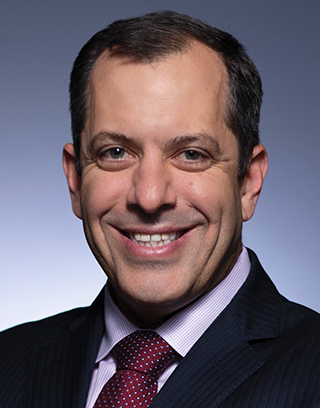What to Know About Back Pain in Children
From heavy backpacks to scoliosis, two NewYork-Presbyterian experts discuss the causes of back pain in children and what kids can do to keep their backs healthy as they return to school.
Back pain, including lower back pain, is a common complaint among children and adolescents, with some studies estimating 4 out of 10 kids suffer from back pain. Whether back pain is related to wearing heavy backpacks or bad posture or a more serious condition like scoliosis — a sideways curve in the spine that is often diagnosed during adolescence — there are steps you can take to treat back pain and, in some cases, prevent it in the first place.

Dr. Michael Vitale
In this Health Matters video, Dr. Michael Vitale, chief of pediatric spine surgery at NewYork-Presbyterian Morgan Stanley Children’s Hospital and NewYork-Presbyterian Och Spine Hospital, and Dr. Katherine Rosenwasser, a pediatric orthopedic surgeon at NewYork-Presbyterian Morgan Stanley Children’s Hospital, address common questions about children’s back health. From talking about the importance of core strength and flexibility to managing a scoliosis diagnosis, these experts share their advice on how to keep children’s backs and joints healthy and strong.
“The good news is most back pain is not only preventable, but treatable,” says Dr. Vitale. “And with scoliosis, we are very effective at slowing or stopping progression of the curve using physical therapy and exercise.”

Dr. Katherine Rosenwasser
For some children, discomfort or pain in their back, hips or knees may be a sign of a more serious musculoskeletal issue that needs surgery. Thanks to the evolution in treatment for orthopedic issues, children who need surgery for things like scoliosis, fractures, or sports injuries are spending less time in the hospital and getting back to their activities faster than ever before.
“At times, back or joint pain may represent a problem that requires intervention, even surgery, and sometimes it just requires more focus on strengthening and stretching,” says Dr. Rosenwasser. “But in no way should you ignore what your body is telling you.”
Additional Resources
Find out more about NewYork-Presbyterian’s pediatric orthopedic services.
Click here for information about the Pediatric Orthopedics and Spine program at Columbia University Irving Medical Center or call 212-305-4565.
Learn more about the comprehensive surgical and nonsurgical spine care available at NewYork-Presbyterian Och Spine Hospital.

